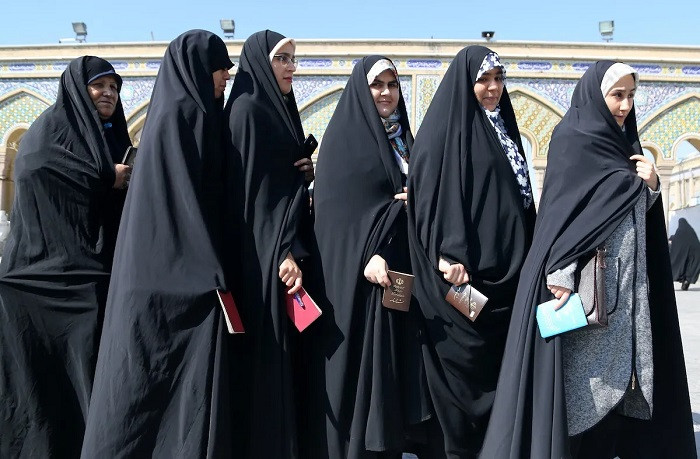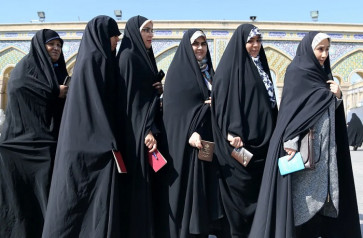Popular Reads
Top Results
Can't find what you're looking for?
View all search resultsPopular Reads
Top Results
Can't find what you're looking for?
View all search resultsReading Mahsa Amini death from Indonesian perspective
We need to recognize that hijab is not a matter of religious obligation, but rather a religious political identity.
Change text size
Gift Premium Articles
to Anyone
T
he death of Mahsa Amini has sparked anger among those who are concerned about women’s safety from state control over the clothes they wear as a form of hegemony over the morality of women. It is reported that her death has sparked anger and huge demonstrations in many cities across Iran.
It seems Amini was not an activist who deliberately violated these rules, which have long been considered discriminatory. This young woman from Kurdistan was simply traveling with her family members to visit their friend’s home in Tehran. But on the way she was arrested by Iran’s morality police and charged with not wearing her hijab properly according to the prevailing moral standard.
When she was arrested on Sept. 13, in full view of her family, she was perfectly healthy, but several days later she was rushed to a hospital in a coma, allegedly from a heart attack. However, her family saw indications of violence and a few days later Amini was declared dead. The public believes she was a victim of torture.
What can we reflect from this event? Amini’s death should serve as a reminder, an alarm bell sounding out to countries that use women’s bodies and sexuality as a moral issue: Not just the hijab, but also the symbolic restriction of women’s space for movement or the reality of issues of their sexuality, such as female genital mutilation.
First, we need to recognize that the hijab is not a matter of religious obligation but rather a religious political identity. It is very clear that the hijab, or whatever name it is called, is more than just a piece of cloth covering a woman’s body.
Since the Islamic revolution in Iran, this cloth covering the head and part of the woman’s body has been a symbol of both political and religious identity. In Iran, during the era of the revolution, the hijab was an effective symbol to distinguish them from the dictatorial regime and at the same time a symbol of resistance to the regime.
But it did not stop there. When the Islamic Republic of Iran replaced the monarchy, hijabs changed function to become a political identity of the new state. Therefore, Amini’s failure to wear the hijab in accordance with the moral standard was seen by the accomplices of those in power – the morality police, as an insult to religious teachings and at the same time a resistance to the hijab itself as a symbol of the victory of men (the patriarchy) and the revolution. By wearing the hijab improperly, Amini seemed to be a symbol of the resurrection of the previous regime of Iran, which was associated with corruption, immorality and freedom to display their aurat (private parts) and thus be a source of fitnah (temptation) for men in public spaces.



















